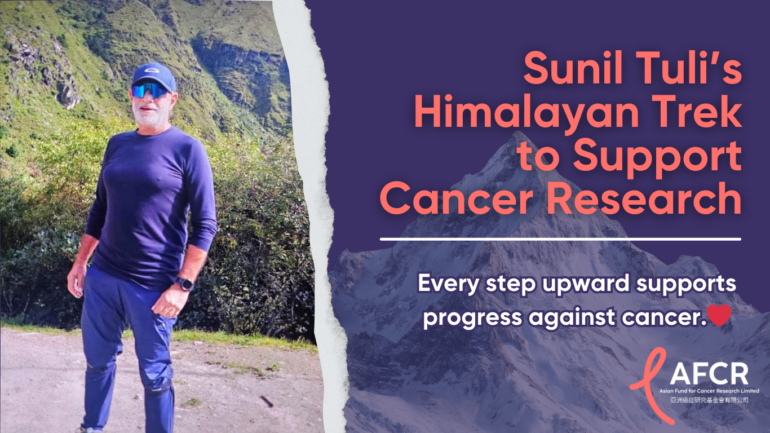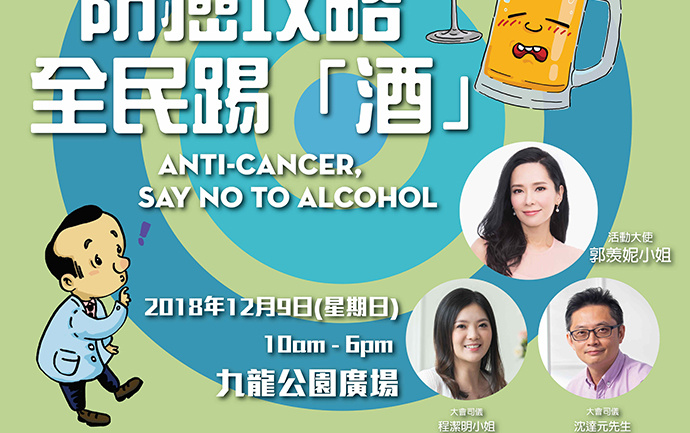THE CHALLENGE
—Unmet Medical Need for Effective Cancer Treatment
AFCR’s mission is to reduce the alarming statistics of the burden of cancer in Asia with innovative treatment research that translates into life-saving therapeutics.
In 2018, there were 8.2 million new cancer cases and 5.2 million cancer deaths in Southern, Eastern and South-Eastern Asia—about half of the cancer burden worldwide.
Hepatocellular Carcinoma (HCC)—the most common type of liver cancer—is the 2nd leading cause of cancer death in East Asia and sub-Saharan Africa.
Hepatitis B virus positive or HBV (+) carriers are 200x more likely to get HCC. In China, 140 million people have HBV and over 400,000 have liver cancer. HBV (+) HCC cases are projected to grow annually in China until 2045.
The global first-line therapy for HCC is sorafenib. In HBV (+) HCC patients, the median overall survival is 10.2 months. Unfortunately, serious adverse effects occur in 80% of patients and can lead to discontinuation of treatment in 38%, dose interruptions in 44% and permanent discontinuation in 11% of patients.
Heterogeneity (diverse gene expression) in patients, the biology of their tumor and the response to drugs makes it difficult to have a single compound or antibody to treat cancer. Current cancer therapies fall short of their goal with only modest response rates and with serious toxicities.
Rational combination strategies are in great need that can improve patient’s response and their quality of life in a meaningful way. And a systems biology approach can lead to new breakthroughs.
THE ANSWER
—Backbone Drug for Future Cancer Regimens
AFCR is supporting a pioneering new paradigm in polychemical, multi-target medicines of botanical drugs.
YIV-906 is a botanical cancer drug that has multi-targets in the tumor microenvironment with synergistic mechanisms of action that can lead to better patient outcomes and reduce the need for additional medicine.
YIV-906 can potentiate anti-tumor activity for immunotherapy, chemotherapy and radiation therapies—and could become the backbone drug for future cancer regimens.
How is YIV-906 Distinct from other Treatments?
YIV-906 has multiple actions in major cancer signaling pathways and is the only known drug candidate that has been shown to be both:
An immune enhancer—by potentiating our body’s innate and adaptive immune anti-tumor activity in the tumor microenvironment via different immune cells—M1 macrophage activation and T-cell activation and proliferation.
Protective of our body’s gastrointestinal tract from inflammation by reducing some of the most important pro-inflammatory signaling molecules—IL-6, NF-KB, and COX2 iNOS. In addition, YIV-906 promotes damaged tissue recovery by enhancing progenitor and stem cell renewal for new healthy cells—via potentiation of Wnt signaling pathway.
Proof of Concept / Safety and Tolerability has already been tested.
In clinical studies in more than 170 patients with liver, pancreatic, colorectal and rectal cancers, promising data suggests that YIV-906 can significantly increase patient survival for chemotherapy and radiation patients, and reduce serious gastrointestinal side-effects to zero or minimal.
Moreover, China’s Ministry of Science and Technology is supporting YIV-906’s next clinical trial as a “China National Major Project for New Drug Innovation”.
THE IMPACT
—Improve Response Rates and Patient’s Quality of Life
This botanical cancer drug platform that halts cancer through multiple targets in a system biology approach can become a major part of a new rational combination treatment strategy—that will save lives and improve the quality of patient’s lives in a meaningful way.
A Clinical Development Plan is already in place for YIV-906
A double blind, randomized, Phase II clinical study is soon to be underway for HBV-positive HCC patients using sorafenib with YIV-906. Across 20 institutions in four regions, 125 patients will be enrolled in the U.S. (led by Memorial Sloan Kettering), China (led by National Cancer Center), Hong Kong (led by Queen Mary Hospital) and Taiwan (led by Taipei Medical University). This study will include liquid biopsies and biomarker research that may be predictive for future clinical studies.
HOW YOU CAN HELP
—You Can Bring Hope of Life-Saving Cancer Care
Your support of AFCR will enable scientists and the research community to make paradigm-changing approaches to cancer diagnostics, treatment and even prevention. When you support AFCR, you’re funding a vision: saving lives and eliminating the global burden of cancer.




